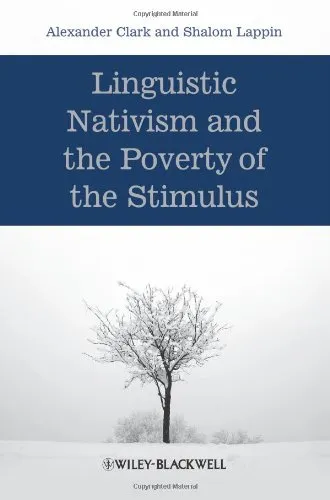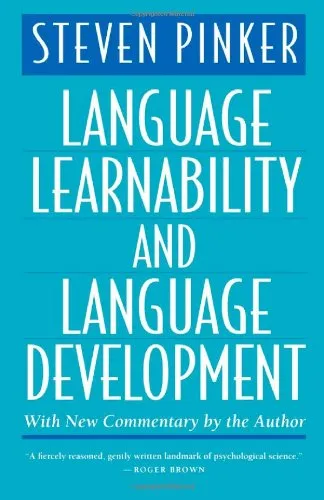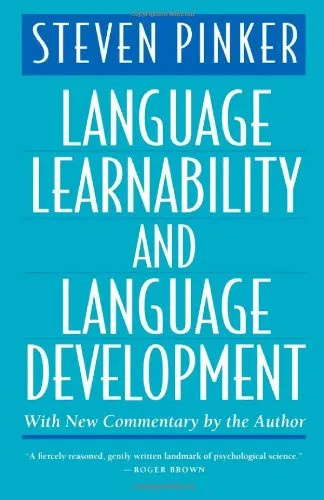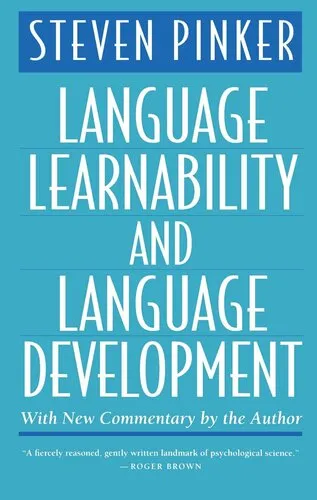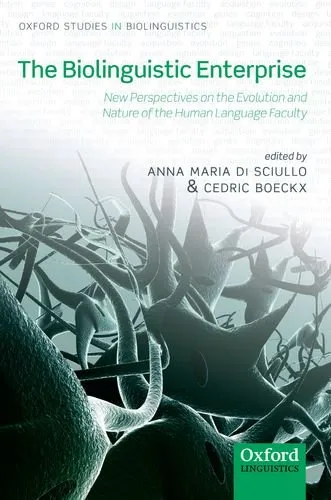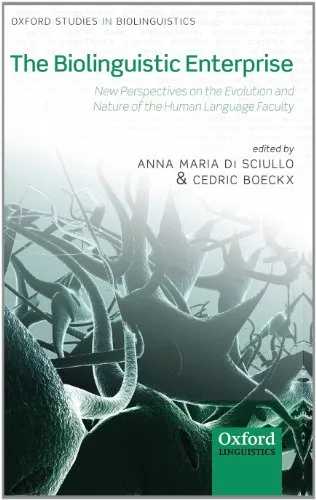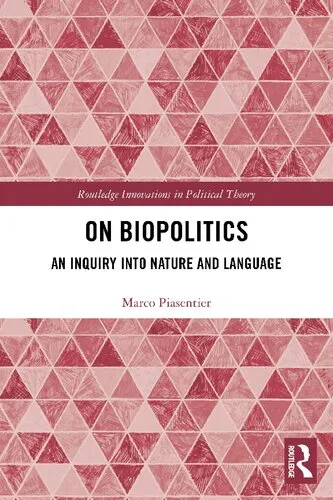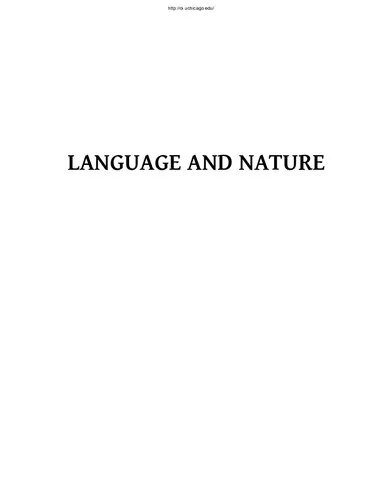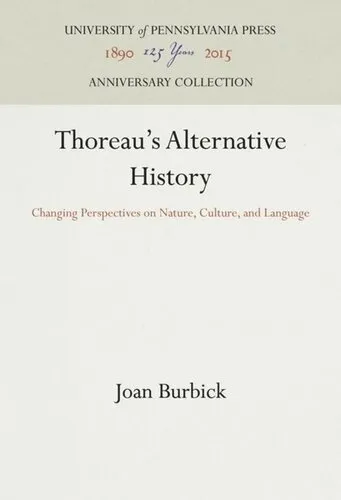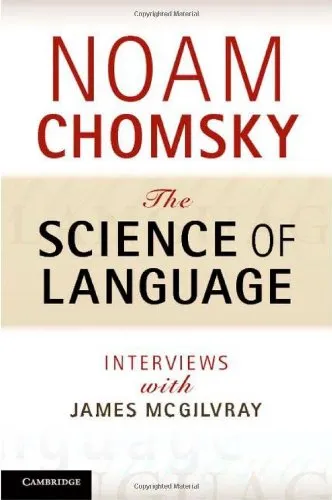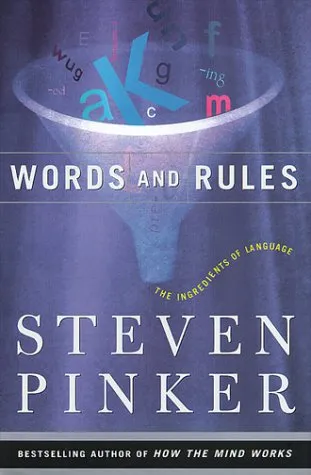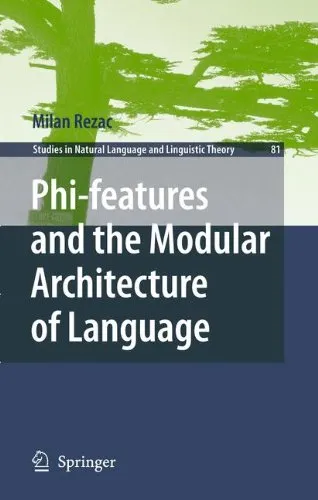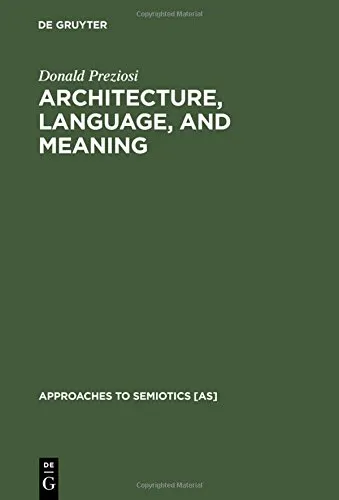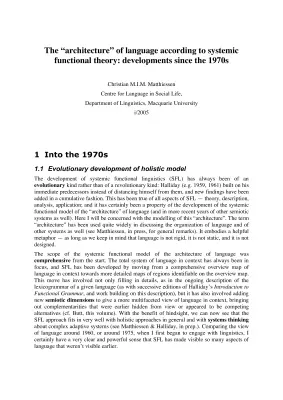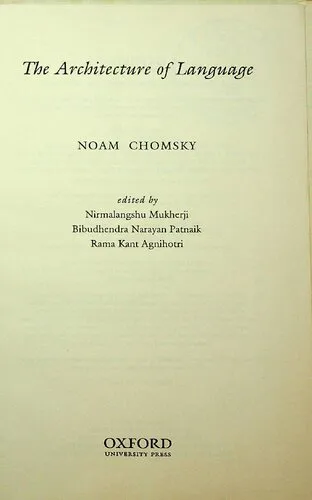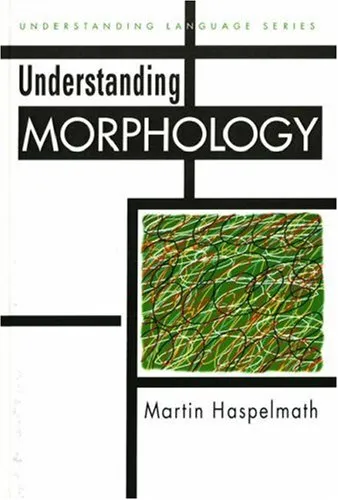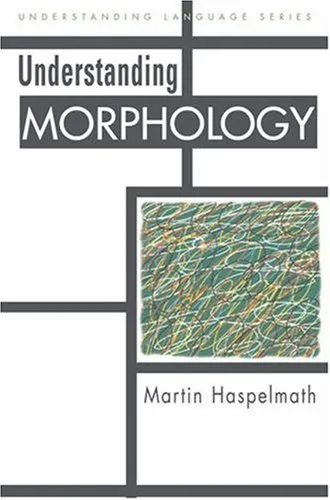Linguistic Nativism and the Poverty of the Stimulus
4.0
بر اساس نظر کاربران

شما میتونید سوالاتتون در باره کتاب رو از هوش مصنوعیش بعد از ورود بپرسید
هر دانلود یا پرسش از هوش مصنوعی 2 امتیاز لازم دارد، برای بدست آوردن امتیاز رایگان، به صفحه ی راهنمای امتیازات سر بزنید و یک سری کار ارزشمند انجام بدینکتاب های مرتبط:
مقدمهای بر کتاب 'Linguistic Nativism and the Poverty of the Stimulus'
کتاب 'Linguistic Nativism and the Poverty of the Stimulus' توسط الکساندر کلارک و شلوم لاپین نوشته شده است. این کتاب به بررسی یکی از مباحث مهم در نظریه زبانشناسی و شناختشناسی، یعنی پردهبرداری از ناتوانی زبانی توسط نهادینهگرایی زبانی میپردازد. نویسندگان در این اثر به چالشهای پایهای و استدلالهای فلسفی در خصوص این دو نظریه میپردازند.
خلاصهای جامع از کتاب
در کتاب 'Linguistic Nativism and the Poverty of the Stimulus' نویسندگان به بررسی و نقد دو نظریه کلیدی در زبانشناسی میپردازند. نظریه نهادینهگرایی زبانی (Linguistic Nativism) معقتد به وجود یک دانش زبانی ذاتی در انسانها است که به صورت ژنتیکی از نسلی به نسل دیگر منتقل میشود. در مقابل، نظریه ناتوانی زبانی (Poverty of the Stimulus) بر این باور است که دادههای زبانی که کودکان در دوران رشد خود در معرض آن قرار میگیرند کافی نیست تا به طور کامل قواعد پیچیده زبانی را شکل دهد. کلارک و لاپین با بهرهگیری از شواهد تجربی و تحلیلهای منطقی سعی در پاسخگویی به این سوالات و چالشها دارند.
نکات کلیدی
- تحلیل دقیق و نقادانهای از نهادینهگرایی زبانی و ناتوانی زبانی.
- ارائه شواهد تجربی برای به چالش کشیدن فرضیات عمومی در نظریههای زبانی.
- تأکید بر اهمیت دادههای زبانی و محیطهای اجتماعی در یادگیری زبان.
جملات معروف از کتاب
"تأثیر زبان بر تفکر، به وضوح نشان میدهد که ادراک انسانها به شدت وابسته به سازوکارهای زبانی است."
"در حالی که نظریه نهادینهگرایی زبانی به دنبال پاسخی برای توانایی زبانآموزی است، چالش اصلی آن مواجهه با کمبود دادههای زبانی میباشد."
چرا این کتاب مهم است؟
'Linguistic Nativism and the Poverty of the Stimulus' با نقد دقیق و بررسی جامع موضوعات محوری در زبانشناسی نظری، کمک میکند تا بررسی بهتری از دانش ذاتی انسانی و یادگیری زبان صورت گیرد. این کتاب نه تنها برای زبانشناسان بلکه برای تمام افرادی که به شناخت مغز و یادگیری علاقهمند هستند نیز کاربردی و ارزشمند است. اهمیت این کتاب در پرسشهای بنیادینی نهفته که مطرح میکند و به واسطه آنها، درک بهتری از چگونگی شکلگیری زبان در انسانها به دست میآید.
Introduction
"Linguistic Nativism and the Poverty of the Stimulus" by Alexander Clark and Shalom Lappin is a profound exploration into the intricate relationship between linguistic theory and cognitive science. The book investigates the central hypothesis of linguistic nativism, which suggests that humans are born with an intrinsic ability for language learning. This text challenges the traditional 'Poverty of the Stimulus' (POS) argument, a cornerstone in nativist thought that claims children acquire complex language systems despite the inadequacy of environmental input. With this book, Clark and Lappin seek to stimulate discussion and further empirical research by systematically examining various dimensions of linguistic acquisition.
Detailed Summary
The debate surrounding linguistic nativism and the Poverty of the Stimulus argument is vast, touching upon key ideas in linguistics, psychology, and cognitive science. "Linguistic Nativism and the Poverty of the Stimulus" addresses the primary assertion that native language capabilities are hard-wired into human cognition. The authors provide a careful analysis of the assumptions and assertions underpinning the POS argument, scrutinizing the extent to which current linguistic data supports or refutes nativist claims.
Spanning several chapters, the book explores topics such as syntax acquisition, language universals, and the role of environment in language development. The authors compare different models and theories, including generative grammar frameworks and alternative cognitive approaches, to provide a balanced overview of the field. Throughout the book, Clark and Lappin emphasize empirical methodologies, advocating for data-driven analysis rather than purely theoretical conjecture.
Key Takeaways
- The book questions entrenched linguistic theories by rigorously examining the evidence and assumptions behind the Poverty of the Stimulus argument.
- It critically evaluates the notion of universal grammar and challenges the idea that linguistic rules are pre-programmed into the human brain.
- Empirical research plays a central role, with the authors calling for a stronger reliance on data to drive linguistic theory development.
- Alternative models of language acquisition are proposed, with a focus on learning mechanisms and the importance of environmental interaction.
Famous Quotes
"Our central aim is to demonstrate that the empirical and conceptual foundations of the POS argument do not support nativism to the extent that its proponents claim."
"Linguistic theory must not only be compatible with the beauty of abstract mathematical formalisms but also with the complexities of biological realities."
Why This Book Matters
The significance of "Linguistic Nativism and the Poverty of the Stimulus" lies in its critical approach to one of the core debates in linguistics and cognitive science. By challenging conventional views and encouraging empirical research, the book pushes the boundaries of what we understand about human language acquisition. It is particularly relevant for scholars and students interested in the intersection of linguistic theory, cognitive science, and philosophy. By questioning traditional paradigms, the book not only provokes thought but also fosters a deeper understanding of the complexities inherent in human cognition and language learning.
دانلود رایگان مستقیم
شما میتونید سوالاتتون در باره کتاب رو از هوش مصنوعیش بعد از ورود بپرسید
دسترسی به کتابها از طریق پلتفرمهای قانونی و کتابخانههای عمومی نه تنها از حقوق نویسندگان و ناشران حمایت میکند، بلکه به پایداری فرهنگ کتابخوانی نیز کمک میرساند. پیش از دانلود، لحظهای به بررسی این گزینهها فکر کنید.
این کتاب رو در پلتفرم های دیگه ببینید
WorldCat به شما کمک میکنه تا کتاب ها رو در کتابخانه های سراسر دنیا پیدا کنید
امتیازها، نظرات تخصصی و صحبت ها درباره کتاب را در Goodreads ببینید
کتابهای کمیاب یا دست دوم را در AbeBooks پیدا کنید و بخرید
1420
بازدید4.0
امتیاز0
نظر98%
رضایتنظرات:
4.0
بر اساس 0 نظر کاربران
Questions & Answers
Ask questions about this book or help others by answering
No questions yet. Be the first to ask!
